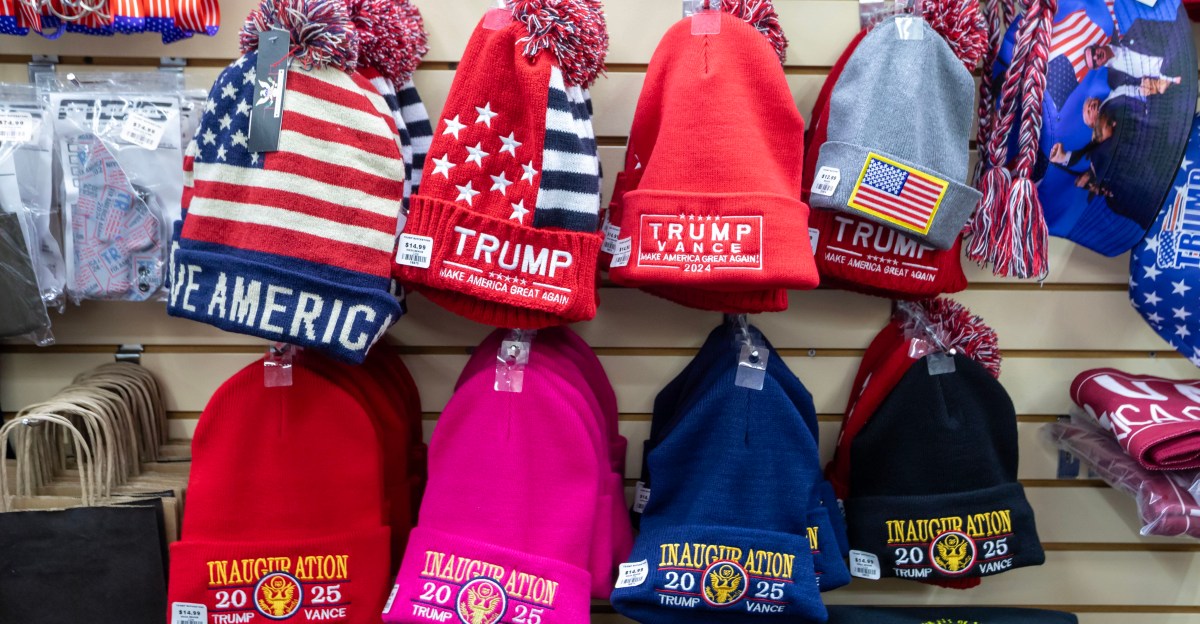Latest Tech News
Citizen will share crime videos with the NYPD

Mayor Eric Adams announced over the weekend that New York City will send users real-time public safety alerts based on their specific location through the crime-tracking app Citizen. The city also announced that public safety agencies, like the New York City Police Department, Fire Department, and Emergency Management, will have access to a portal to review footage shared by users on Citizen.
Citizen’s verified partner program for cities like New York is tied to a partnership with Axon’s (formerly known as Taser) Fusus platform, the “real-time crime center” it acquired last year. Axon announced a partnership with Ring in April that allows law enforcement to request access to video footage from owners’ security cameras in a certain area during a certain time. At the same time, it also announced an integration with Citizen to support sending alerts and pulling in public videos from Citizen’s users. According to Citizen, users who don’t want their videos shared directly can opt out in the app’s settings, but all videos posted are still “viewable and downloadable by the public.”
Adams said the new NYC Public Safety account on Citizen will send notifications about public safety, weather emergencies, and major incidents based on a user’s neighborhood, ZIP code, or borough.
Citizen lets users report potential safety incidents, share videos, and broadcast live footage from within its app. It also says it can send alerts to nearby mobile devices “within seconds” of a 911 call or a user report, and also offers a premium safety line.
Citizen already allows law enforcement to obtain information from its app as long as they have a warrant, but it also offers the ability for police to get data “without delay” in case of emergencies. It originally launched under the name “Vigilante” in 2016, but the app was booted from the App Store for promoting vigilantism, TechCrunch reported at the time. The app later relaunched as Citizen and has faced heavy criticism in the years since, with some arguing it fuels fear in communities. In 2021, Citizen CEO Andrew Frame came under fire for encouraging users to hunt down the wrong person suspected of starting a California wildfire.
Latest Tech News
Meta is playing the AI game with house money

Mark Zuckerberg’s AI hiring spree is costing a lot of money. His investors don’t care.
Meta’s stock price shot up over 10 percent on Wednesday after the company reported better-than-expected earnings. Revenue generated in the second quarter was $47.5 billion, up 22 percent from a year ago. Daily users across Facebook, Instagram, Threads, and WhatsApp grew to almost 3.5 billion. Meta also warned Wall Street that it would spend more on data centers and hiring next year. In response to all this, the company’s valuation increased by over $175 billion, or more than 12 Scale AI deals.
”Our business continues to perform very well, which enables us to invest heavily in our AI efforts,” Zuckerberg said during today’s earnings call. Meta’s cash cannon is now fully pointed at his new moonshot of achieving superintelligence, or as he puts it, AI that “surpasses human intelligence in every way.” He bragged about providing the richly compensated members of his new superintelligence lab “access to unparalleled compute” for training new models that will “push the next frontier in a year or so.”
Zuckerberg’s last moonshot was the metaverse, which came up only once at the very end of today’s earnings call. It’s too early to compare the two projects, but they share a key similarity: they need the kind of funding that only a company like Meta can provide.
Where AI differs from the metaverse, however, is that it appears to be already improving Meta’s ads business. A new AI model for delivering ads has driven approximately five percent more conversions on Facebook and three percent more conversions on Instagram, according to CFO Susan Li. Large language models are also starting to power how posts are ranked in feeds across the company’s apps, including Threads.
While Meta is still spending heavily on the metaverse (it’s on track to spend a total of $100 billion on its Reality Labs division this year), there’s no mistaking the fact that AI is officially Zuckerberg’s top priority. This time, though, he’s playing catch-up in a heated race, not trying to invent a new platform from scratch. The stakes are much higher, even if he’s playing the game with house money.
Latest Tech News
YouTube tells creators they can drop more F-bombs

YouTube videos with strong profanity in the first seven seconds (words like “fuck”) are now eligible for full monetization, according to a video from Conor Kavanagh, YouTube’s head of monetization policy experience. Previously, these kinds of videos were only eligible for “limited ad revenue.”
Changes to YouTube’s inappropriate language policies have long been a sore spot for creators. In November 2022, the company began to potentially limit ad revenue if profanity was used in the first 8–15 seconds of a video. ProZD, whose real name is SungWon Cho, published a video where, after waiting 15 seconds, he called the policy change “the dumbest fucking shit I’ve ever heard.” (He later said that the video was demonetized.) YouTube adjusted its policies in March 2023, including allowing videos with profanity in the first 8–15 seconds to be eligible for ad revenue.
I asked ProZD his thoughts about Tuesday’s change. “It’s about fucking time.”
The company originally restricted monetization for videos with swearing at the start of videos to “align with broadcast standards,” Kavanagh says. “Advertisers expected ads on YouTube to have distance between profanity and the ad that just served.” However, “those expectations have changed,” he says, “and advertisers already have the ability to target content to their desired level of profanity.”
While the only specific example of “strong” profanity Kavanagh provides is “fuck” — he says that YouTube defines “moderate profanity” as words like “asshole” or “bitch” — “you get the idea,” he says.
YouTube will continue to limit monetization if you use moderate or strong profanity in titles or thumbnails. Videos with a “high frequency” of strong profanity are also still a “violation” of YouTube’s advertiser-friendly content guidelines, Kavanagh says. “You have to pick and choose your fucks carefully.”
Latest Tech News
The controversial legal tactic The Trump Organization is using to take down fake merch

Unauthorized merch promoting Donald Trump — from hats and mugs to signs and T-shirts — is everywhere online. Go to a Trump rally or other MAGA political event and you’re bound to find people hawking their DIY Trump wares.
The Trump Organization apparently isn’t too pleased.
A lawsuit filed last week claims online sellers on platforms like eBay, Amazon, and Walmart are hawking goods that infringe on the Trump Organization’s trademarks.
“Defendants design the online marketplace accounts to appear to be selling genuine TRUMP Products while selling inferior imitations of such products,” the suit, filed in US District Court in Florida, reads.
But The Trump Organization’s lawsuit isn’t your run-of-the-mill trademark case — look at the filing and you won’t find a list of sellers the firm is going after. Instead, there’s a vague stand-in for the defendants: “The individuals, corporations, limited liability companies … identified on Schedule A.”
These lawsuits are a way to go after dozens, hundreds, or even upwards of a thousand online storefronts all at once, making it much cheaper for plaintiffs. Schedule A suits are regularly filed under seal, meaning there isn’t the same level of public transparency. At times, plaintiffs have been able to get extraordinary remedies in court, like getting defendants’ assets frozen — including in a case I wrote about where an Amazon seller was unable to withdraw $50,000 in earnings.
These types of lawsuits get their name from the separate “Schedule A” form that’s filed to court — often under seal — listing all the online storefronts being sued. While it’s true that the web is filled with knockoffs, some experts have argued that Schedule A suits at times go overboard and raise due process concerns for the entities being accused of selling infringing products.
I’m not a judge or a trademark expert, so I will make no judgment on the merits of The Trump Organization’s claims. But it’s fascinating to see the president’s private business take up the same legal tactic that’s used by brands like Nike. Fake (or, to be more precise, unauthorized) Trump merch feels part and parcel with the MAGA ecosystem, whether it’s a homemade Trump yard sign or bloody post-assassination attempt pictures being plastered on T-shirts for sale on Etsy.

 Fintech1 week ago
Fintech1 week agoOpenAI and UK Government Partner on AI Infrastructure and Deployment

 Latest Tech News2 weeks ago
Latest Tech News2 weeks agoThe tech that the US Post Office gave us

 Cyber Security1 week ago
Cyber Security1 week agoMicrosoft Fix Targets Attacks on SharePoint Zero-Day – Krebs on Security

 Latest Tech News1 week ago
Latest Tech News1 week agoTrump wanted to break up Nvidia — but then its CEO won him over

 Artificial Intelligence2 weeks ago
Artificial Intelligence2 weeks agoApple loses key AI leader to Meta

 Latest Tech News5 days ago
Latest Tech News5 days agoGPD’s monster Strix Halo handheld requires a battery ‘backpack’ or a 180W charger

 Cyber Security6 days ago
Cyber Security6 days agoPhishers Target Aviation Execs to Scam Customers – Krebs on Security

 Artificial Intelligence1 week ago
Artificial Intelligence1 week agoWhy Apple is playing it slow with AI

















